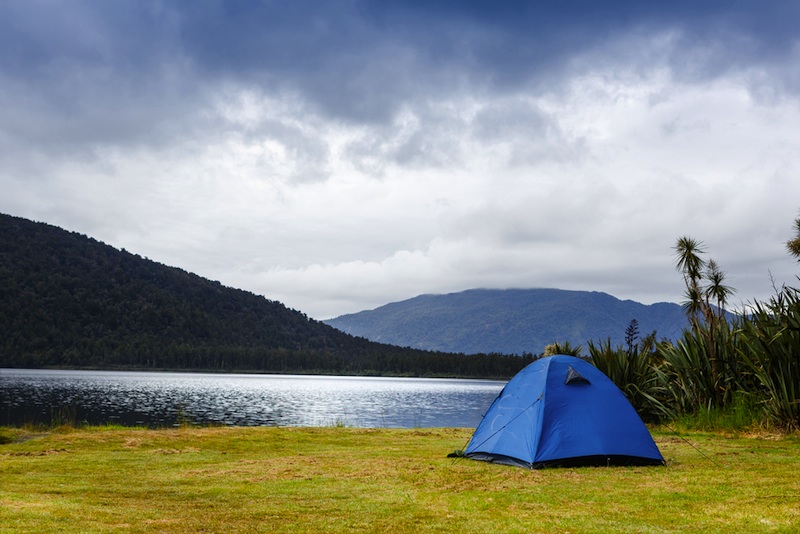Wish You Were a Morning Person? Try a Camping Trip

A weeklong camping trip can help reset a person's internal biological clock, so that it will be easier to wake up in the morning and feel more alert, a new study suggests.
After study participants spent more time exposed to natural light and less time in artificial lighting, researchers found their bedtimes and wake-up times shifted, both moving up to two hours earlier.
"After camping, the night owls in the group showed the greatest shifts in the timing of their internal clocks," said study researcher Kenneth P. Wright, Jr., an associate professor of physiology at the University of Colorado at Boulder.
"Night owls looked more similar to earlier morning types," Wright said. In other words, night owls started keeping an early-to-bed, early-to-rise schedule, and they said they felt more alert in the morning.
This study was the first to quantify the impact of our modern lifestyle — of spending more time indoors in artificial light and less time outdoors in natural light — on human's internal biological clocks, or circadian rhythms, the researchers said.
The findings are published online today (Aug. 1) in the journal Current Biology.
Increasing natural light
Get the world’s most fascinating discoveries delivered straight to your inbox.
In the study, researchers looked at eight adults with an average age of 30 who did not have any sleep problems. Participants spent one week living their usual schedules of working, attending school, socializing, exercising, sleeping and waking, and they wore a wristwatchlike device that measured their light exposure. [Best Camping Spots in America's Backyard]
Then they spent a week camping in Colorado's Rocky Mountains in July. In the great outdoors, participants were exposed to sunlight and a campfire's glow, but were not allowed to use any artificial light — meaning no computers, flashlights or cellphones.
Before the camping trip and after it ended, researchers measured levels of melatonin, a hormone that regulates sleep and wakefulness, as a marker for each participant's individual biological clock.
During the week of camping, the participants were exposed to four times more natural light, on average, compared with when they lived their normal lives, Wright said.
More natural light caused the participants' internal clocks to become perfectly in sync with nature's light and dark cycle, or the timing of sunrise and sunset, he pointed out.
"If people want to be more alert in the morning, they need to increase their exposure to natural lighting during the day, and decrease their exposure to electrical lighting in the evening," Wright said.
But you don't have to pitch a tent, unroll a sleeping bag and go camping to reap these benefits.
Wright suggested making an effort to get more natural light in the morning or at lunch by taking a walk and raising shades or blinds at home and at work. He also recommended dimming lights and reducing the intensity of artificial lights on computers, TVs, and other electronic devices an hour before bedtime.
"A flip of a light switch can be pretty powerful," Wright said, adding that "light can be very arousing and alerting to the brain."
Resetting internal clocks
"This study goes a considerable way toward showing the practical impact of light exposure on human biological clocks in the real world," said Dr. Andrew Lim, a sleep neurologist at Sunnybrook Health Sciences Centre in Toronto, who was not involved in the research.
Lim said the findings reveal how an artificial lighting environment — with insufficient light during the day and excessive light after sunset — can play an important role in causing people to fall asleep later and wake-up later. It leads to a misalignment between sleep-wake cycles and an individual's internal biological clock.
Lim said that it's difficult to attribute all of the observed effects in the study to differences in light exposure alone, because campers also had different activity levels and social schedules than they would at home.
He also mentioned that it's unclear whether these results would hold true in other latitudes, during other seasons besides summer, and in different age groups.
FollowLiveScience @livescience, Facebook & Google+. Original article on LiveScience.com .
Cari Nierenberg has been writing about health and wellness topics for online news outlets and print publications for more than two decades. Her work has been published by Live Science, The Washington Post, WebMD, Scientific American, among others. She has a Bachelor of Science degree in nutrition from Cornell University and a Master of Science degree in Nutrition and Communication from Boston University.


